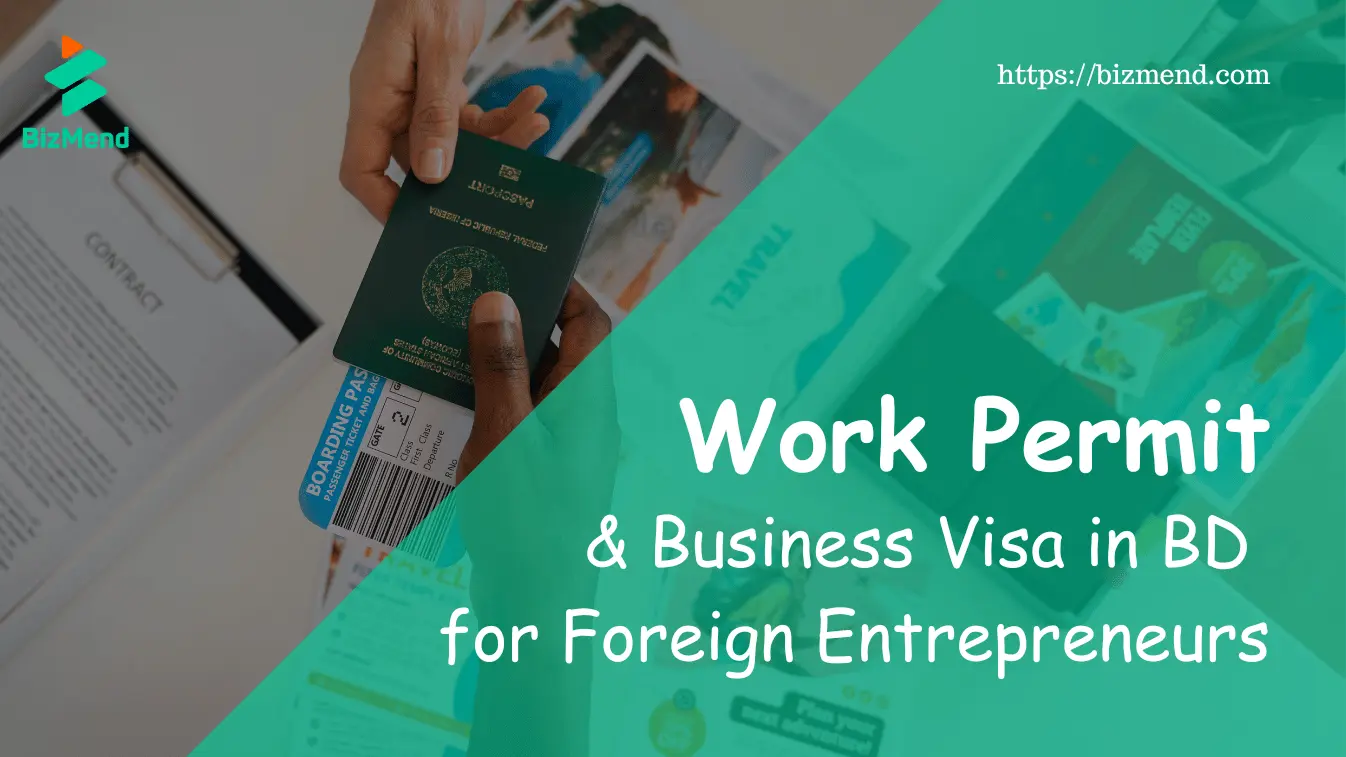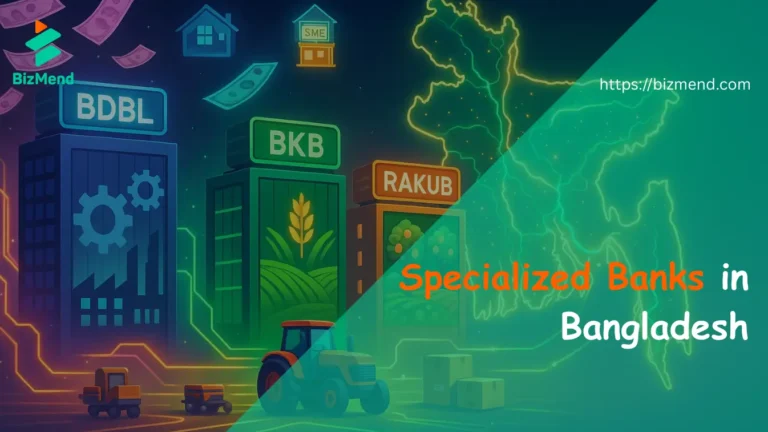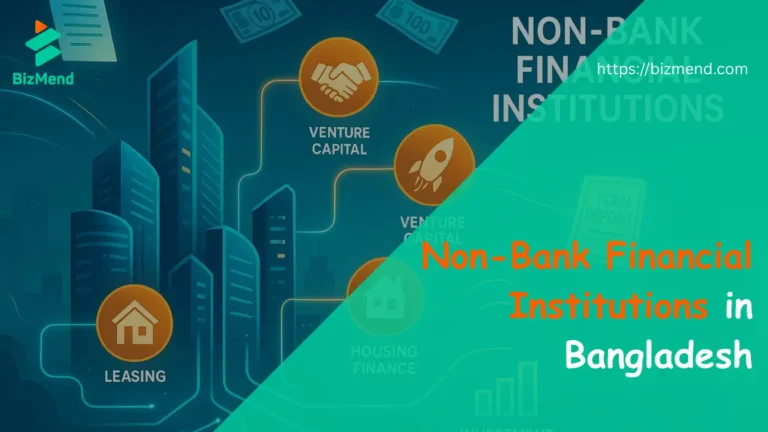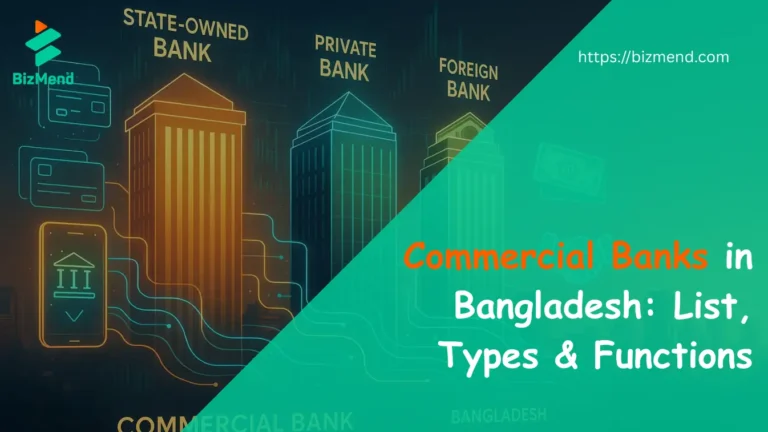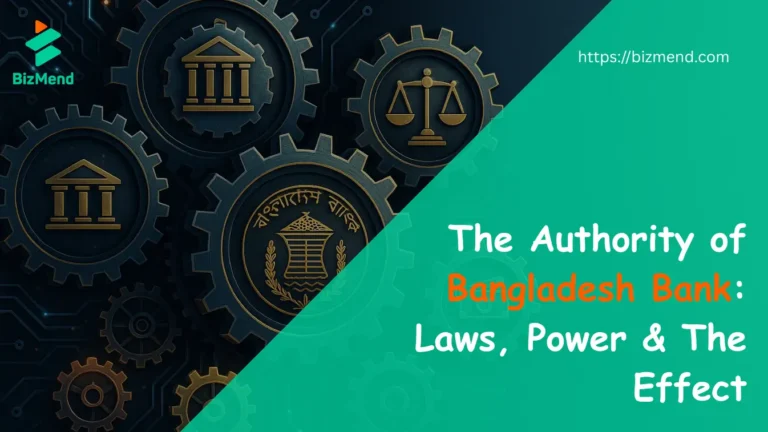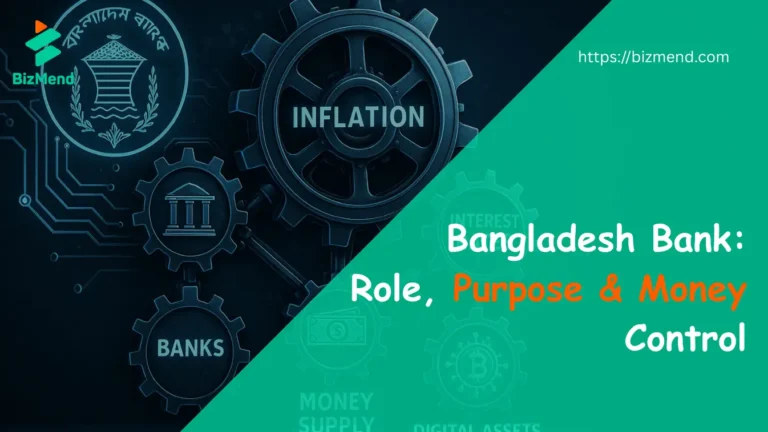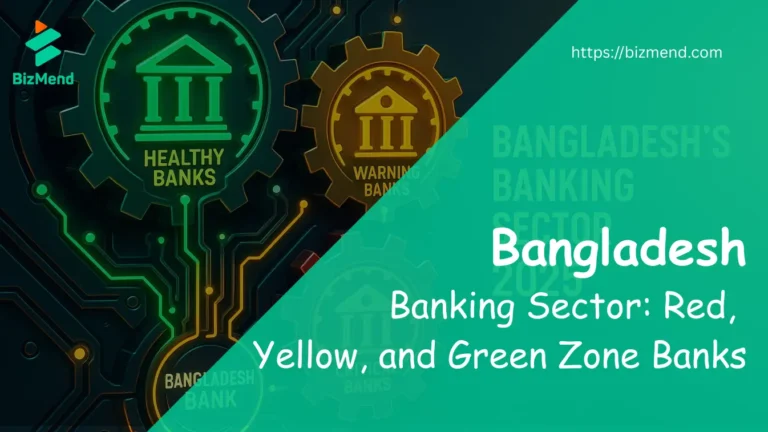“Getting in is easy. Staying in, legally? That takes a little homework.”
So You’re Expanding to Bangladesh, But Can You Actually Work Here?
You’ve figured out how to register your company. Maybe you’ve already sorted and planned your BIDA approval, how to open a local bank account, and even discussed a lease for the company’s operation. You’ve even read up on the top legal requirements for foreign entrepreneurs. You’re ready to roll.
But then someone asks:
“Hey, are you legally allowed to work here?”
Cue panic.
Because suddenly, you’re not just a founder—you’re an expat navigating visa types, work permits, and government approval letters written in Bengali.
In this blog, I’ll walk you through what truly matters—minus the legal burdens. Whether you’re figuring out a business visa or sorting out a work permit in Bangladesh, don’t stress. You’ll stay on track. Just follow the rules and strictly keep your focus right where it should be.
What’s the Actual Difference Between a Business Visa and a Work Permit?
If you’re a foreign entrepreneur looking to start a business in Bangladesh, you’ll usually come across two main types of visas:
Business Visa (B Visa)
Short-term. Visitor-friendly.
This visa is designed for attending meetings, exploring partnerships, conducting market research, or setting up your business—but not for employment or drawing a salary from a Bangladeshi company.
- Validity: Up to 6 months, extendable
- Allowed activities: Meetings, feasibility studies, business visits
- Not allowed: Running operations, signing contracts as a legal rep, employment
- Application: Through Bangladeshi embassies/consulates abroad
Use this visa if you’re:
- Surveying the market
- Finalizing a company structure
- Still waiting on your work permit in Bangladesh
Quick Tip: You can apply for this before company formation—perfect if you’re still going through Company Types & Restrictions.
Work Permit (E Visa + Permission from BIDA/BEZA)
This is where you get the right to work and get paid in Bangladesh.
If you’re actively involved in your company—as a founder, managing director, or technical expert—you’ll need a work permit for foreigners in Bangladesh. It’s processed through:
You’ll also need a Letter of Appointment, a local trade license, and various legal documents.
What If You’re a Startup Founder or Equity Holder?
Let’s say you’re not drawing a salary (yet), but you’re spending real time here, building. Do you still need a work permit?
Most likely, yes.
In practice, BIDA treats active founders the same as foreign employees—if you’re operating day-to-day, signing contracts, or managing teams, you’re considered “working.”
Equity alone doesn’t exempt you.
That said, some startup-friendly sectors (like ICT or R&D) may receive slightly faster processing, especially if your investment is backed by recognized partners or accelerators. But don’t count on it. Apply early, and make sure your legal structure is clear.
How to Apply for a Business Visa for Bangladesh
This is the simpler one.
- Apply through Bangladesh’s embassy or consulate in your country.
- Provide:
- Company invitation letter (from a BD-based business)
- Purpose of visit
- Valid passport + photo
- Typically valid for 3–6 months, with multiple entry options
Quick Note: Business visas don’t convert into work permits automatically. They’re separate processes.
How to Apply for a Work Permit in Bangladesh
This is where you’ll need structure, patience, and paperwork.
Step-by-Step Snapshot:
- Apply to BIDA/BEZA online
- Submit:
- Appointment/contract letter
- Company’s trade license
- TIN + incorporation certificate
- Justification letter (why you’re hiring a foreigner)
- Resume, passport copy, photo
- Wait for BIDA clearance
- Once approved, apply for the E visa through your local embassy
- After entering Bangladesh, apply for the No Objection Certificate (NOC) and stay permit
Processing time: The whole thing can take 4–6 weeks or longer than that, so plan ahead.
Renewal: What Happens When Your Work Permit Expires?
Work permits in Bangladesh are usually issued for 1 year and renewed annually. Renewal isn’t automatic—you’ll need to:
- Submit an updated application through BIDA/BEZA
- Show proof of tax compliance, trade license renewal, and active operations
- Provide updated contracts or board resolutions
Quick Tip: Start renewal at least 2 months before expiry.
Delays in processing can mess with your ability to legally work—or even leave and re-enter the country.
From Business Visa to Work Permit: Can You Transition Inside Bangladesh?
This is where most foreign founders get confused.
Here’s the deal:
You can start on a business visa, but once your company is registered and operational, you can’t keep working on that visa. You’ll need to leave the country, get your E visa from a Bangladeshi embassy, and re-enter with your work permit approval letter.
So, plan accordingly. Don’t book a long-term stay on a business visa if you’re planning to start operations.
Paperwork Checklist
- Passport (valid for at least 6 months)
- Trade License (for company)
- Incorporation Certificate
- Tax Identification Number (TIN)
- Appointment Letter / Shareholding Proof
- Local office address (see: How to Lease or Buy Office Space in Bangladesh as a Foreigner)
- Photo + CV + application form
Does a Work Permit Make You a Tax Resident?
Technically, yes—if you spend over 182 days in a year in Bangladesh, you’ll be considered a tax resident, even if you’re a foreigner.
That means:
- You might have to submit a personal income tax return.
- You’ll be taxed on income earned in Bangladesh
- You may also get resident tax benefits, like reduced VAT or customs rates, depending on your activity
This ties into the bigger picture—see: Taxation Essentials for Foreign Entrepreneurs in BD.
Long-Term Options: What If You Want to Stay Longer or Bring Family?
Right now, Bangladesh does not offer a startup visa or residency-by-investment scheme like some countries do. But here’s what you can do:
- Apply for multiple renewals of your work permit
- Bring dependents on a D visa, linked to your E visa
- Apply for long-term business visas (1–5 years) at embassies, perfect for frequent business travelers.
- Consult BIDA if you’re investing significantly in priority sectors like infrastructure, energy, or IT
Staying long-term is possible—but it requires planning, renewal discipline, and clear business structure.
Don’t Just Enter. Integrate.
Getting the right visa or permit isn’t red tape. It’s a message.
It tells partners, government agencies, even your own employees:
“I’m here for real.”
So don’t see it as a checklist item. See it as the backbone of your presence in Bangladesh.
Because long after the company registration and compliance are done—your ability to operate legally is what keeps everything in motion.
You’re not just visiting anymore.
You’re building.
Do it with the right papers in place.
FAQ
Can I just run my company on a business visa?
Only in the earliest days—like scouting suppliers or attending meetings. But once you start signing contracts, managing operations, or taking money from your business, you’ll need a work permit. Business visas don’t let you legally “work” in Bangladesh.
I’m the founder, but not on payroll. Do I still need a work permit?
Yes. If you’re here and actively running your company—founder, shareholder, or director—you’re still working. The authorities don’t care if you’re drawing a salary or not. If you’re part of it, you’ll need the permit.
Can I apply for a work permit while I’m in Bangladesh?
Yes—but after BIDA/BEZA approves it, you’ll need to exit and re-enter the country with an E visa issued by a Bangladeshi embassy. It’s not a 100% inside-the-country process.
How long are work permits valid, and can I renew?
Most are valid for one year, renewable annually. Don’t wait till it expires—renewals can take a few weeks, and delays can impact your immigration status. Keep your company’s compliance up to date for smooth processing.
What happens if I work without a permit?
You could end up with fines, get kicked out, or even be barred from coming back. Bangladesh welcomes foreign investors, but it takes visa violations seriously.
Is there any startup-friendly policy or a fast track?
Not officially. But in reality, tech, R&D, and export-focused sectors may experience slightly faster approvals—especially if you’re structured well and investing properly. Having clean filings and professional assistance helps a lot.
Got a work permit in Bangladesh, do I need to file taxes?
If you’re in the country for 182+ days in a year, yes. You’re considered a tax resident. You’ll be expected to file personal income taxes for income earned here.
(Refer to: Taxation Essentials for Foreign Entrepreneurs in Bangladesh)
Can I bring my spouse and kids on my visa?
Yes. You can apply for dependent visas (D category) linked to your E visa. Just make sure your own documents and company filings are in order first.
Can I get a multi-year visa or long-term residency?
Work permits are renewed yearly. Long-term visas (like 3–5 years) are possible in select cases—especially for major investors or companies working with BIDA on strategic projects. But they’re still rare.


